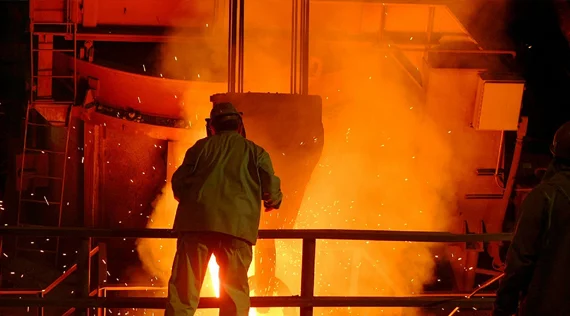Unions, Politicians Getting Nippon-US Steel Deal All Wrong
Steel News | 2024-02-13 11:19:05
The deal should be applauded. Instead, the announcement was protested by both sides of the political aisle.
SEATTLE (Scrap Monster): Nippon Steel’s decision to buy US Steel, the iconic American company, is a test for Joe Biden. The president has embraced an economic security agenda designed to protect the interests of America’s middle classes while promoting partnership and closer collaboration with allies.
There have been howls of disapproval and vows to block the deal – but that would be a mistake. The Nippon Steel purchase can advance both of Biden’s objectives and show the world that economic security is not thinly veiled protectionism.
US Steel is an icon. It was arguably the most important company in the world when formed in 1901. It became the first billion-dollar corporation – its US $1.4 billion valuation was twice the size of the US federal budget – producing the metal that was the very embodiment of the Industrial Revolution.
For a company that once made 40% of all the steel in the world, the last few decades have been marked by stagnation and decline. Last year, its 15,000 employees – a sliver of its peak of 340,000 during World War II – produced 11.2 million tons of steel, 27th in world output and second in the US. (By revenue, the company ranks third in the US.)
Experts and engineers struggle to identify any important innovation by the company in recent years. One analysis concluded that “no major steelmaking technology over the last century came out of US Steel.” Not surprisingly, the company lost money in nine of the last 15 years.
The company’s woes amplified calls for protection of domestic markets. Donald Trump embraced that cause and imposed 25% tariffs on steel imports, insisting that “trade wars are good and easy to win.”
Biden replaced those taxes with quotas (for European producers at least) and used those barriers to incentivize foreign companies to invest in US production. The Inflation Reduction Act helped domestic producers to up their game.
The deal by Nippon Steel to purchase the company was valued at $14.1 billion, a little less than twice the offer from Cleveland Cliffs, a domestic competitor, and a 40% premium on the closing price of US Steel shares on the day it was announced. Combining US Steel with Nippon, now the world’s fourth-largest maker, will produce the world’s second-largest steel company, trailing only China Baowu Group.
The deal should be applauded. Instead, the announcement was protested by both sides of the political aisle.
Republicans denounced the purchase, with Republican Senator JD Vance of Ohio warning that it would undermine US national security since foreigners would be “less responsive to US national security needs.” A letter from Vance and fellow GOP senators Marco Rubio and Josh Hawley to Treasury Secretary Janet Yellen calls Nippon Steel “a company whose allegiances clearly lie with a foreign state.”
After meeting with Teamsters officials, former President Donald Trump, the likely GOP nominee for the 2024 election, called the deal “terrible” and said he would “block it instantaneously. Absolutely.”
Democrats have been no less apoplectic. Senator John Fetterman of Pennsylvania, where US Steel is headquartered, thundered that “The acquisition of US Steel by a foreign company is wrong for workers and wrong for Pennsylvania. I’m gonna do everything I can to block it.” Bob Casey, Pennsylvania’s other senator, and Ohio’s Sherrod Brown, both Democrats, agree.
Steelworkers, too, complained, saying that they had not been consulted before the deal was struck and challenging Nippon Steel’s commitment to the collective bargaining agreement their union signed with US Steel. Nippon Steel said it will honor all existing union contracts.
With 1 million union members in key swing states, political calculations weigh heavily on any administration decision. The Biden administration has acknowledged the firestorm. Lael Brainard, the president’s national economic adviser, said the deal deserved “serious scrutiny.”
Courtesy: www.asiatimes.com
 By
By 